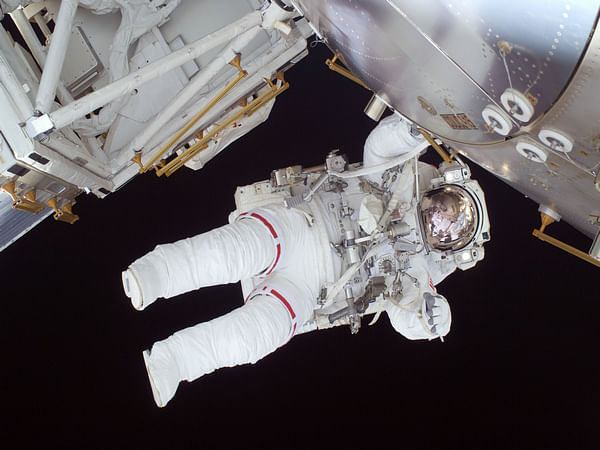Stockholm [Sweden], August 28 (ANI): A recent study led by Karolinska Institutet researchers in Sweden investigated how weightlessness affects immune system T cells. The findings, published in the journal Science Advances, may explain why astronauts’ T cells become less active and effective at fighting infection.
The next steps in the exploration of space are human missions to the moon and to Mars. Space is an extremely hostile environment that poses threats to human health. One such threat is changes to the immune system that occur in astronauts while in space and that persist after their return to Earth. This immune deficiency can leave them more vulnerable to infection and lead to the reactivation of latent viruses in the body.
“If astronauts are to be able to undergo safe space missions, we need to understand how their immune systems are affected and try to find ways to counter harmful changes to it,” says study leader Lisa Westerberg, principal researcher at the Department of Microbiology, Tumor and Cell Biology, Karolinska Institutet. “We’ve now been able to investigate what happens to T cells, which are a key component of the immune system, when exposed to weightless conditions.”
In the study, the researchers have tried to simulate weightlessness in space using a method called dry immersion. This involves a custom-made waterbed that tricks the body into thinking it is in a weightless state. The researchers examined T cells in the blood of eight healthy individuals for three weeks of exposure to simulated weightlessness. Blood analyses were performed before the experiment started, at 7, 14 and 21 days after the start, and at 7 days after the experiment ended.
They found that the T cells significantly changed their gene expression – that is to say, which genes were active and which were not – after 7 and 14 days of weightlessness and that the cells became more immature in their genetic programme. The greatest effect was seen after 14 days.
“The T cells began to resemble more so-called naïve T cells, which have not yet encountered any intruders. This could mean that they take longer to be activated and thus become less effective at fighting tumour cells and infections. Our results can pave the way for new treatments that reverse these changes to the immune cells’ genetic programme,” says Carlos Gallardo Dodd, PhD student at the Department of Microbiology, Tumor and Cell Biology, Karolinska Institutet and shared first author with researchers Christian Oertlin and Julien Record at the same department.
After 21 days, the T cells had “adapted” their gene expression to weightlessness so that it had almost returned to normal, but analyses carried out seven days after the experiment ended showed that the cells had regained some of the changes.
The researchers now plan to use Esrange Space Centre’s sounding rocket platform in Kiruna, Sweden, to study how T cells behave in weightless conditions and how their function is affected. (ANI)
This report is auto-generated from ANI news service. ThePrint holds no responsibility for its content.



